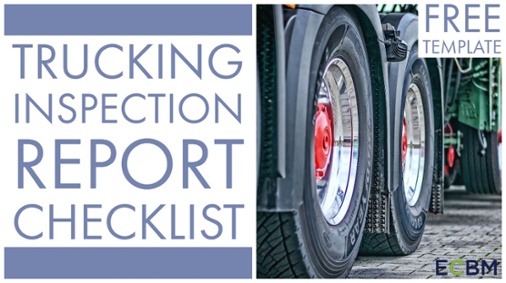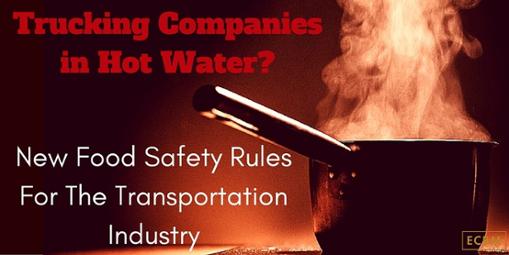The Food and Drug Administration’s new rule on Sanitary Transportation of Human and Animal Food starts to take effect in mere months for those carriers that do not qualify as small businesses. The rule defines small businesses for motor carriers as those carriers with less than $27.5 million in annual receipts.
The FSMA Enforecement Schedule
- Any motor carrier involved in the carrying, shipping, or receiving of food for distribution in the United States with gross annual receipts over $27.5 million must come into compliance with the rule by April 6, 2017.
- Small business motor carriers have until April 6, 2018 to come into compliance. The rule does not apply to carriers with less than $500,000 in annual receipts.
The Responsibility Overwhelmingly Falls On Shippers
Kevin Forbes, VP Transportation at ECBM, warns, “The Sanitary Transportation rule puts a lot of responsibility on shippers to make determinations regarding the conditions necessary to keep food safe; it also assumes and requires shippers to share this information with carriers and receivers. The Food and Drug Administration looked to industry best practices in developing this rule, which assumes that contractual relationships will fill many of the communication and responsibility sharing aspects of the rule. This means all companies involved in the transportation of food, especially motor carriers, will have to pay close attention to the contracts they are signing, the responsibilities placed upon them by those contracts, and the certifications they are making to their shippers and receivers.”
Key Areas Of FSMA Compliance In Your Contracts To Look Out For Now
The rule highlights three specific areas where it expects contractual agreements between the shipper and the motor carrier to play a major role in implementation and enforcement:
- temperature control
- contamination of bulk cargo by previous cargo
- sanitation
The shipper bears responsibility for ensuring that any carrier with which it contracts has adequate procedures regarding these three elements to ensure the safe transportation of food.
Audit And Organize Your Business's Practices To Stay Ahead Of The Curve
This means that in practice shippers will require carriers to detail and certify their procedures and practices with respect to these areas in their contracts as well as giving shippers and receivers certain rights to inspect vehicles and records to ensure carriers continually meet their obligations throughout the life of the contractual agreement.
While technically this rule will not apply to smaller motor carriers until 2018,
Scott Nuelle, VP- ECBM Transportation Specialist notes, “Many shippers will begin including these types of terms within their contracts much sooner than that. Indeed, many probably did so even prior to the publication of the rule - let alone waiting for FDA compliance dates. That means that smaller motor carriers should already be taking steps to come into compliance with new requirements for appropriate vehicle sanitation, refrigeration, record-keeping, and employee training as it may result in lost business when shippers look to do business with those carriers that can already comply with contractual requirements.”
Taking steps to come into compliance earlier than other smaller carriers will help you gain a competitive advantage over your similarly sized competitors and avoid headaches caused by a rush to comply in February, March, and April in 2018.



